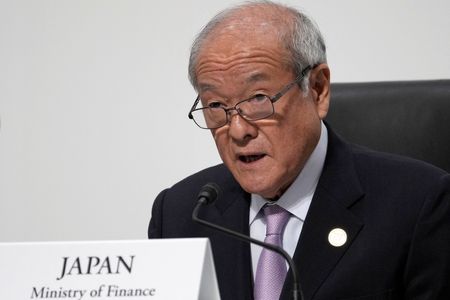 1
1 1
1
By Leika Kihara
TOKYO (Reuters) -Japan’s finance minister said on Wednesday the government must look into whether it can buy the central bank’s huge holdings of exchange-traded funds at book value, following a proposal that they be used to distribute wealth to the younger generation.
The proposal came from an opposition lawmaker, though Prime Minister Fumio Kishida has made wealth distribution among key policy agendas in his efforts to boost Japan’s growth potential.
Due to Japan’s ageing population, people aged 60 years or more hold roughly 60% of total household financial assets.
The distortion has given rise to calls from academics to transfer more wealth to the younger generation who have stronger needs to spend on education, housing and other living costs.
“The government must look into whether it’s permissible to buy (the BOJ’s ETF holdings) at book value for the purpose of securing sources of revenue,” Finance Minister Shunichi Suzuki told parliament.
The BOJ’s ETF holdings as of March 2023 stood at 37 trillion yen ($265.75 billion) in book value, and 53 trillion yen in market value, according to the central bank’s earnings data.
Distributing ETFs to the younger generation would give rise to various issues that must be cleared, such as the risk of the households selling the ETFs and affecting broader stock price moves, he added.
BOJ Governor Kazuo Ueda told the same parliament session that it was premature to debate specifics on how the central bank could unload its ETF holdings.
“When achievement of our price target is foreseen, we will debate specifics (of an exit policy) at our policy meeting and disclose the information,” Ueda said.
Ueda also said that in principle, the central bank plans to sell the ETFs at market value, instead of book value.
As part of efforts to sustainably achieve its 2% inflation target, the BOJ currently buys government bonds and risky assets such as ETFs. It also sets a -0.1% short-term interest rate target and a 0.5% cap on the 10-year bond yield.
($1 = 139.2300 yen)
(Reporting by Leika Kihara; Editing by Simon Cameron-Moore)